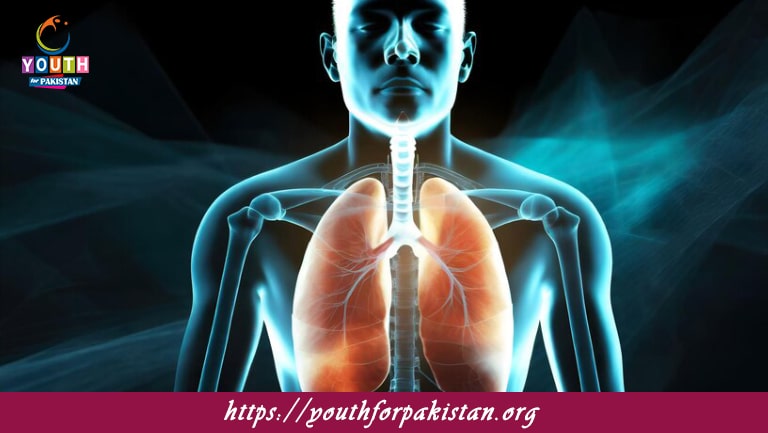Welcome to the Respiratory System and Breathing MCQs with Answers. In this post, we are sharing Respiratory System and Breathing Multiple Choice Questions and Answers in Everyday Science section for various competitive exams in Pakistan. Each question offers a chance to enhance your knowledge regarding Respiratory System and Breathing online MCQs Test.
What is the primary muscle involved in breathing?
a) Intercostal muscles
b) Diaphragm
c) Pectoral muscles
d) Abdominal muscles
Which structure is the site of gas exchange in the lungs?
a) Bronchi
b) Alveoli
c) Trachea
d) Bronchioles
The trachea divides into two branches called the:
a) Bronchi
b) Alveoli
c) Larynx
d) Pharynx
What is the main function of the respiratory system?
a) Transport oxygen to cells
b) Remove waste from cells
c) Exchange oxygen and carbon dioxide
d) Produce red blood cells
Which structure prevents food from entering the airway during swallowing?
a) Trachea
b) Epiglottis
c) Larynx
d) Esophagus
The voice box is also known as the:
a) Pharynx
b) Larynx
c) Trachea
d) Bronchus
What is the term for the movement of air into and out of the lungs?
a) Respiration
b) Ventilation
c) Circulation
d) Diffusion
The process by which oxygen is taken into the lungs and carbon dioxide is expelled is called:
a) Inhalation
b) Exhalation
c) Respiration
d) Diffusion
Which gas is exhaled during breathing?
a) Oxygen
b) Carbon dioxide
c) Nitrogen
d) Hydrogen
Which part of the brain regulates breathing?
a) Cerebrum
b) Cerebellum
c) Medulla oblongata
d) Hypothalamus
How is most oxygen transported in the blood?
a) Dissolved in plasma
b) Attached to hemoglobin in red blood cells
c) In white blood cells
d) Bound to platelets
What is the function of the nasal cavity in the respiratory system?
a) Filter, warm, and moisten air
b) Produce sound
c) Exchange gases
d) Regulate airflow to the lungs
Which of the following structures is responsible for filtering particles from the air we breathe?
a) Trachea
b) Bronchioles
c) Nasal hairs
d) Alveoli
Which condition is characterized by the inflammation of the bronchi?
a) Asthma
b) Bronchitis
c) Pneumonia
d) Emphysema
The exchange of oxygen and carbon dioxide between the blood and the air in the lungs is called:
a) Cellular respiration
b) External respiration
c) Internal respiration
d) Pulmonary ventilation
Which muscle contracts to expand the chest cavity during inhalation?
a) Diaphragm
b) Intercostal muscles
c) Pectoralis major
d) Abdominal muscles
What is the primary cause of respiratory acidosis?
a) Excess oxygen
b) Increased carbon dioxide
c) Decreased oxygen
d) Low pH in the lungs
Which part of the respiratory system is commonly known as the windpipe?
a) Pharynx
b) Trachea
c) Larynx
d) Bronchi
What is the normal breathing rate for an adult at rest?
a) 5-10 breaths per minute
b) 12-20 breaths per minute
c) 25-30 breaths per minute
d) 30-40 breaths per minute
The smallest airways in the lungs are called:
a) Bronchi
b) Alveoli
c) Bronchioles
d) Tracheoles
Which respiratory condition is characterized by chronic obstruction of airflow?
a) Asthma
b) Tuberculosis
c) Chronic obstructive pulmonary disease (COPD)
d) Pneumonia
Which gas is necessary for cellular respiration?
a) Nitrogen
b) Oxygen
c) Carbon dioxide
d) Hydrogen
What is the role of surfactant in the lungs?
a) Increases lung capacity
b) Reduces surface tension in the alveoli
c) Filters dust particles
d) Controls breathing rate
Which part of the respiratory system prevents the collapse of the trachea?
a) Diaphragm
b) Cartilage rings
c) Alveoli
d) Intercostal muscles
What condition is characterized by the collapse of part or all of a lung?
a) Asthma
b) Atelectasis
c) Bronchitis
d) Tuberculosis
Which of the following helps control the rate of breathing based on blood pH levels?
a) Medulla oblongata
b) Hypothalamus
c) Cerebellum
d) Cerebrum
What type of blood vessel surrounds the alveoli for gas exchange?
a) Arteries
b) Veins
c) Capillaries
d) Bronchioles
Which structure is responsible for producing sound?
a) Larynx
b) Trachea
c) Pharynx
d) Alveoli
The pleura is a membrane that surrounds the:
a) Heart
b) Brain
c) Lungs
d) Liver
Which respiratory disease is caused by the bacterium Mycobacterium tuberculosis?
a) Emphysema
b) Tuberculosis
c) Pneumonia
d) Bronchitis
What happens during exhalation?
a) The diaphragm contracts
b) The diaphragm relaxes
c) The chest cavity expands
d) Air enters the lungs
How is most carbon dioxide transported in the blood?
a) Dissolved in plasma
b) Bound to hemoglobin
c) As bicarbonate ions
d) Attached to red blood cells
What is the function of the pharynx in the respiratory system?
a) Filter air
b) Produce sound
c) Connect the mouth and nose to the larynx
d) Exchange gases
Which condition is characterized by damage to the alveoli, making it difficult to breathe?
a) Pneumonia
b) Asthma
c) Emphysema
d) Tuberculosis
What is the oxygen-carrying protein in red blood cells?
a) Hemoglobin
b) Albumin
c) Myoglobin
d) Fibrinogen
Which condition is characterized by a temporary cessation of breathing during sleep?
a) Asthma
b) Apnea
c) Emphysema
d) Bronchitis
Which respiratory condition is caused by a viral or bacterial infection of the alveoli?
a) Pneumonia
b) Asthma
c) Tuberculosis
d) Bronchitis
Which part of the respiratory system allows for the passage of air between the nose and trachea?
a) Larynx
b) Pharynx
c) Bronchioles
d) Alveoli
If you are interested to enhance your knowledge regarding Physics, Chemistry, Computer, and Biology please click on the link of each category, you will be redirected to dedicated website for each category.










